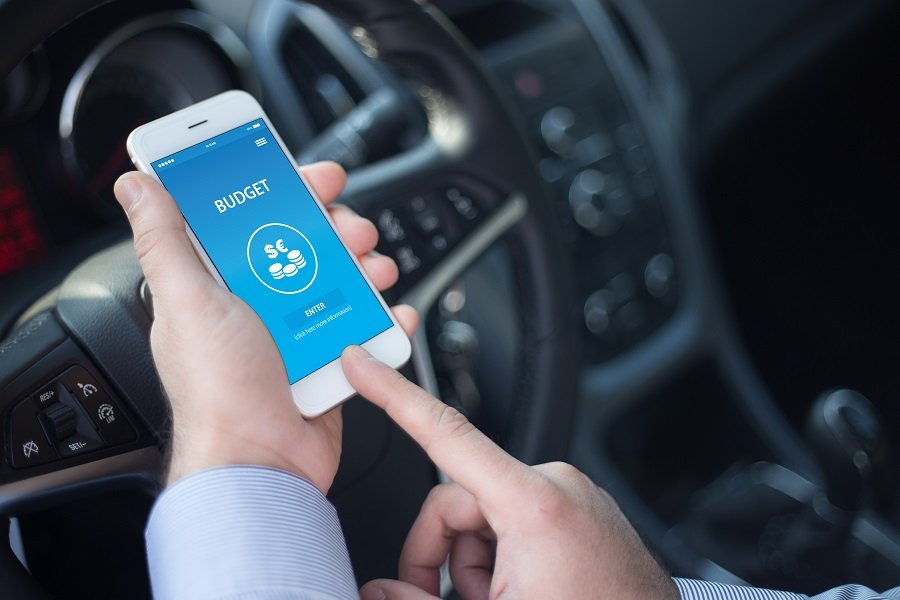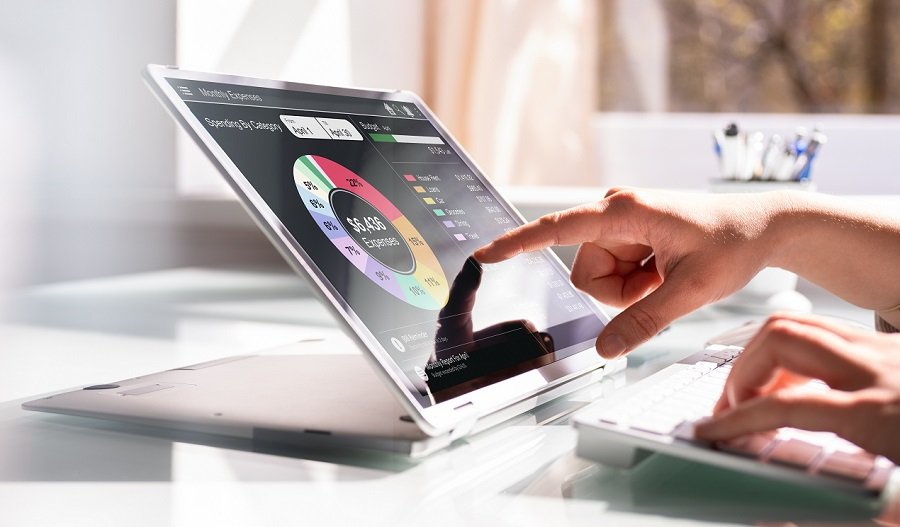Budgeting Apps for Android

Table of Contents
Below are the top Budgeting Apps for Android currently available at Google Play based on popularity and ratings. I have added a quick rundown of important facts about each app like the price, star rating and the biggest pro and con for each app.
Budgeting Apps can be a powerful tool when it comes to getting a grip on your finances. I personally attribute the ability to get out of debt and eventually retire at the ripe of 34 to using the YNAB (You Need a Budget) PC Application (and now Android App). Without it I am not sure I would have been successful!
**NOTE: I receive no compensation for recommending any of these apps (I wish it were otherwise though 
Top Android Budgeting Apps
1. Mint
This app is the product of the famous website of the same name. If you are not familiar with Mint, it is a company that tries to tie together your budget, personal account information and your credit report information into one spot.
Mint is now owned by intuit, the same company that owns both TurboTax and QuickBooks. The company advertises that they are trying to give their customers a single resource for all their financial needs. One thing to keep in mind is that the service / app does appear to be free… usually this means that they will be collecting and selling your data.
If you are okay with the terms of service and how they will use your data, this app appears to be a solid choice from a functional point of view. With over 10,000,000 downloads on the Google Play, this app is the 2nd most downloaded for budgeting.
Link to Mint
Stars: 4.5/5.0 (190,000 Reviews)
Price: Free (Data Collection) They use your information to create ‘offers,’ but the unknown consequences of other uses of your data may be undesirable.
2. Money Manager Expense & Budget
Billed as the most popular budget app on Google Play, Money Manager touts its ability to analyze spending statistics and make backups of data using Excel in addition to advanced budgeting features.
One of the most striking things you will notice when using this app is how aesthetically pleasing it is despite the significant amounts of data it is able to cram on the screen. In contrast to other apps, this one will cost $ and thus at time of writing you can be reasonably sure the data you put into the app is not being used for other purposes intentionally.
Link to Money Manager Expense & Budget
Stars: 4.7 (295,000 Reviews)
Price: Ads or Free with Google Play Pass
Major Pro: Your data stays private and can be backed up externally for storage outside of the app.
Major Con: There is no desktop or web interface to access the same data using the cloud.
3. EveryDollar: Budget Tracker
This app, widely advertised by Dave Ramsey himself on his famous personal finance show, was developed by none other than Ramsey Solutions. Allowing you to budget both at home and on your mobile device, this app was intended to help you do what its name implies: assign a purpose for every dollar prior to spending it.
Link to EveryDollar: Budget Tracker
Stars: 4.2 (9,000 Reviews)
Price: Free Limited Version or $129 Per Year
Major Pro: If you are a believer in the Dave Ramsey way of budgeting money then this app will help you do it in a manner that is philosophically consistent… and you can do it on a Desktop or on a Mobile Device.
Major Con: Incredibly expensive considering only a middling reviews of the app. This app is newer than most of the others so time will tell if it can be improved.
4. YNAB – Budget, Personal Finance
YNAB is budgeting tool that grew from a set of 4 core principles geared toward getting people out of debt. Since those early years it has stayed true to its core mission and focused on user experience. YNAB has won numerous awards for its older desktop application and cloud experience.
On a personal note, as mentioned at the intro, I personally use YNAB and cannot recommend it highly enough. The simplicity of using the app hasn’t changed since YNAB was formed over a decade ago, however, this may be a con for some folks since some features available elsewhere haven’t made it into production at YNAB.
Link to YNAB – Budget, Personal Finance
Stars: 4.2 (8,000 Reviews)
Price: Free to Try, $11.99 a Month
Major Pro: Data is stored in the cloud and makes budgeting easy across all platforms without sacrificing data privacy.
Major Con: Although the web and desktop experience are one of the best in the industry, the app is limited in doing anything outside of specific budgeting tasks… if you rely on this app you will have to use a desktop or browser or some point to tidy things up or complete complex entries.
5. Money Manager
This curiously named app is one of the most installed budget apps on Google’s Android App Store. Despite the name ‘Money Manager’ being generic, I am still suspicious given that the app was developed in Russia. Thus, I am intentionally not providing a link below. This is a great example of why it always a good idea to be highly critical of all apps despite their popularity.
To paint a fuller picture: the most downloaded budget app on the app store is “Money Manger Expense & Budget” with over 10,000,000 downloads… thus it would be easy to mistake the #1 app for this app which shares the first two words. An additional interesting tidbit, however, is this app has better reviews (in terms of stars) than the more downloaded app.
Either way, I will let you be the judge. This app does cater to non-U.S. Dollar budgets with the ability to set other currencies as users see fit… however, I see this as only a minor benefit since the currency ‘sign’ doesn’t really matter.
Stars: 4.9 (100,000 Reviews)
Price: Ads
Major Pro: Has the ability to change currency type so that those outside of the United States can benefit from a solid budgeting experience.
Major Con: Russian developer who curiously named this app similarly to a better performing budgeting app. This activity may not be a turn off for non-financial apps, however, when the app is dealing with your money the developer’s reputation matters.
Things to Look Out For
- The Cost – You will want to consider forking money over for your app. ‘Free’ apps usually are designed to collect significant amounts of information about you and your habits… where this data will end up either intentionally or unintentionally in the future is speculative at best.
By paying money for an app, you are likely going to be able to sidestep the other privacy related concerns (always double check the fine print!). Additionally, it will usually get rid of any ads that may be being presented.
Having random code snippets execute on your mobile device that may or may not just be images is usually not a good idea when the app is used to help you track your finances.
- The Cost – You will want to consider forking money over for your app. ‘Free’ apps usually are designed to collect significant amounts of information about you and your habits… where this data will end up either intentionally or unintentionally in the future is speculative at best.
 Desktop / Web Application Compatibility – Being able to address your budget either in a web browser or with a desktop application in addition to your mobile device is an important capability that should not be overlooked.
Desktop / Web Application Compatibility – Being able to address your budget either in a web browser or with a desktop application in addition to your mobile device is an important capability that should not be overlooked.Usually, this will require a cloud environment and increased costs for the developer, but this type of infrastructure is commonplace in modern times.
If your budget lives exclusively on your phone it may be difficult to share with a spouse or develop a more sophisticated understanding of your spending habits.
Choosing an app or service with at least a cloud presence will also ensure the possibility that your budget may be able to live on other devices in the future… perhaps on an iPhone if needed if you decide to change platforms.
Developer Credentials – Being able to trust that your budget and possibly bank accounts linked to the app you are using is trustworthy might be one of the most important considerations.
There are smart people all over the planet that are developing great solutions for personal finance, however, if you run into an issue that may result in you needing to take legal action then you will want to be able to do it in your home country. Specifically, you should avoid developers that have no incentive to do the right thing… not because people from other places are automatically bad.
If something looks off in the app store, always remember that it is the wild west and you should listen to your gut. I showed above how an app downloaded over 1,000,000 times and with a high rating was developed in Russia and appears to have copied the name of the most downloaded budget app. This may be totally innocent, but the warning signs are enough to look elsewhere.
Concluding Thoughts
 Getting your budget onto your mobile device is a need not a want in modern times. There are numerous solutions out there to get you rolling. Finding an app that has a presence in the cloud, doesn’t sell your data and can be accessed across various platforms is a major plus.
Getting your budget onto your mobile device is a need not a want in modern times. There are numerous solutions out there to get you rolling. Finding an app that has a presence in the cloud, doesn’t sell your data and can be accessed across various platforms is a major plus.
Additionally, making sure you understand the costs, both implied and dollar-wise that are associated with each app should be done prior to investing your time populating the app with your budget information.
By seeking an understanding of the developer’s background and possible motivations you can further develop a trust that the app you are using is safe and secure.
I hope you enjoyed this article. I was surprised by some of what I found frankly. If there are any apps you use that I didn’t list, drop them in the comments below!
Guy Money
As a formally trained Data Scientist I find excitement in writing about Personal Finance and how to view it through a lens filtered by data. I am excited about helping others build financial moats while at the same time helping to make the world a more livable and friendly place.

 Desktop / Web Application Compatibility – Being able to address your budget either in a web browser or with a desktop application in addition to your mobile device is an important capability that should not be overlooked.
Desktop / Web Application Compatibility – Being able to address your budget either in a web browser or with a desktop application in addition to your mobile device is an important capability that should not be overlooked.

